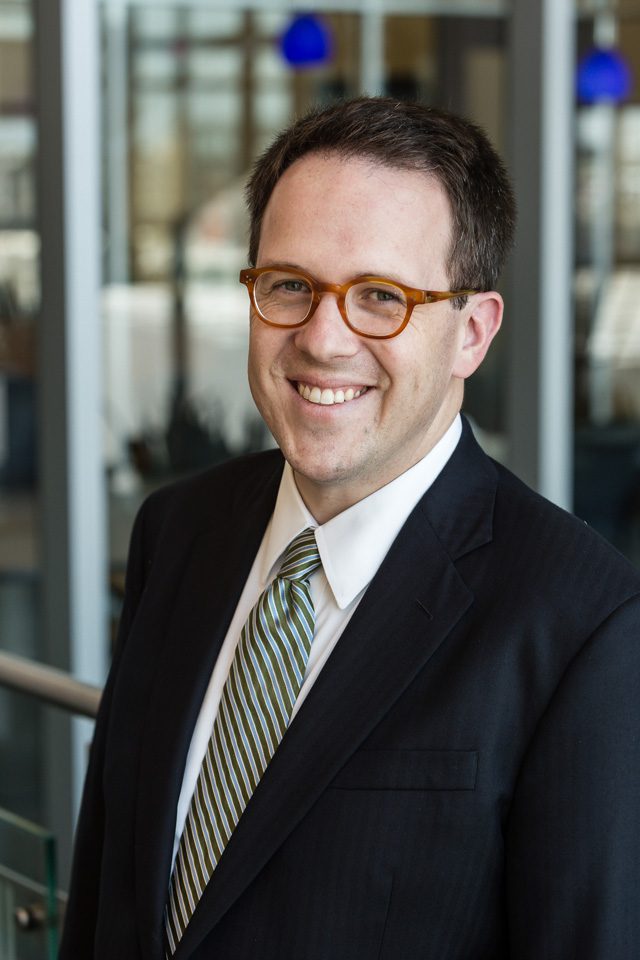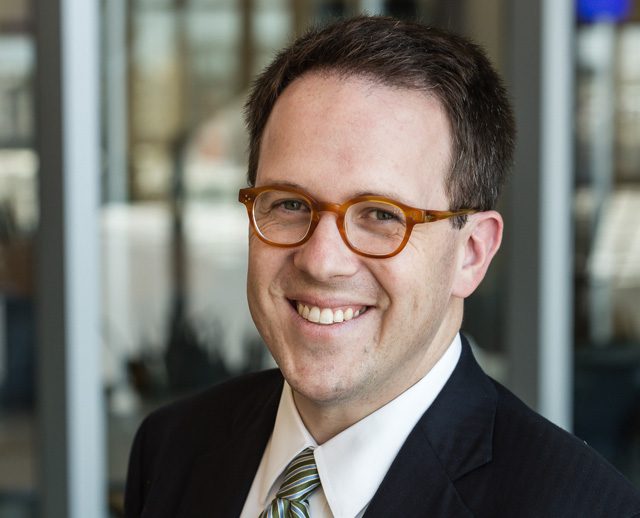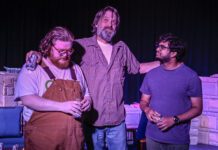
[dropcap]In[/dropcap] the current era of political divisiveness and fighting, is it possible to run a campaign based solely on making Tulsa a better city? Tulsa Mayor-elect G.T. Bynum thought it was worth a try – and he discovered that was exactly what Tulsans wanted.
“When my wife and I decided that I should run, we wanted to run the type of campaign that we would be proud of regardless of the outcome, and we wanted to run a campaign that was really focused on unifying the city,” he says. “And you don’t unify a city by tearing your opponent down the whole time. So we decided early on that we wanted to give people a positive reason to vote for me rather than try to convince them they shouldn’t vote for my opponent.”
The strategy worked for Bynum at the polls as the city councilman defeated incumbent Dewey Bartlett by an 18 percent margin. Now, his goal is to take the positive energy from his campaign and use it to build a better future for Tulsa.
Bynum sees Tulsa as a city of opportunity and a place where people are looking to create an impact. Unlike larger cities, he says, he sees a place where young Oklahomans have the chance to act on their desires to make a difference in the city instead of moving to other parts of the country. It’s an opportunity he has already acted on himself – the 38-year-old and his wife lived in Philadelphia and Washington, D.C. before moving back to his home town a decade ago to raise their family. He was elected to Tulsa’s city council in 2008, following his family’s legacy of community service – his great-great grandfather was Tulsa’s second mayor, serving from 1899 until 1900, and his maternal grandfather, Robert LaFortune, served as the city’s mayor from 1970 until 1978.
The change he has seen in the decade since moving back is remarkable, he says, and it provides a strong foundation moving forward. Bynum adds the size of Tulsa is a benefit in attracting young professionals looking to make an impact in their community, because the size of cities like New York and Los Angeles can be an obstacle for young people trying to become involved.
“We’re a mid-sized city, and that presents opportunities for people who want to shape the city in a positive direction to be able to do so,” he says. “That’s been a great marketing tool for us to bring back a lot of young professionals from other parts of the country home to Tulsa because they realize, yeah, they can have a cool job in some of these other cities, but they can have a cool job and make a mark on history here in Tulsa.”
Bynum’s ideas for making Tulsa a nationally competitive city are varied and wide reaching. He plans to establish better partnerships between the City of Tulsa and the schools to prepare a highly trained workforce and make Tulsa the best place in Oklahoma to receive an education. He points out the success Tulsa has in creating a vibrant urban core by building facilities such as the BOK Center, attracting businesses into downtown Tulsa and planning new areas like A Gathering Place and the expansion to the Gilcrease Museum. He adds, however, the city has much more to do to reach its potential as a truly exceptional city.
To reach that goal, Tulsans “must unite behind high expectations,” he says – the guiding idea behind his campaign for mayor.
“The main purpose of my campaign was not to be elected, but instead to unite Tulsans behind a renewed spirit of high expectations for our community,” Bynum says. “Political experts are still surprised by our margin of victory, because they think in partisan political terms. We think in terms of the community. And the reality is this is a community that wants to be nationally competitive, that wants to aim high with a potential for failure but also a potential for great success. But it needed a group of people to show what that can look like, and we did so. Now the task is to translate the coalition we built during the campaign into one that will act on the ideals we share.”


























